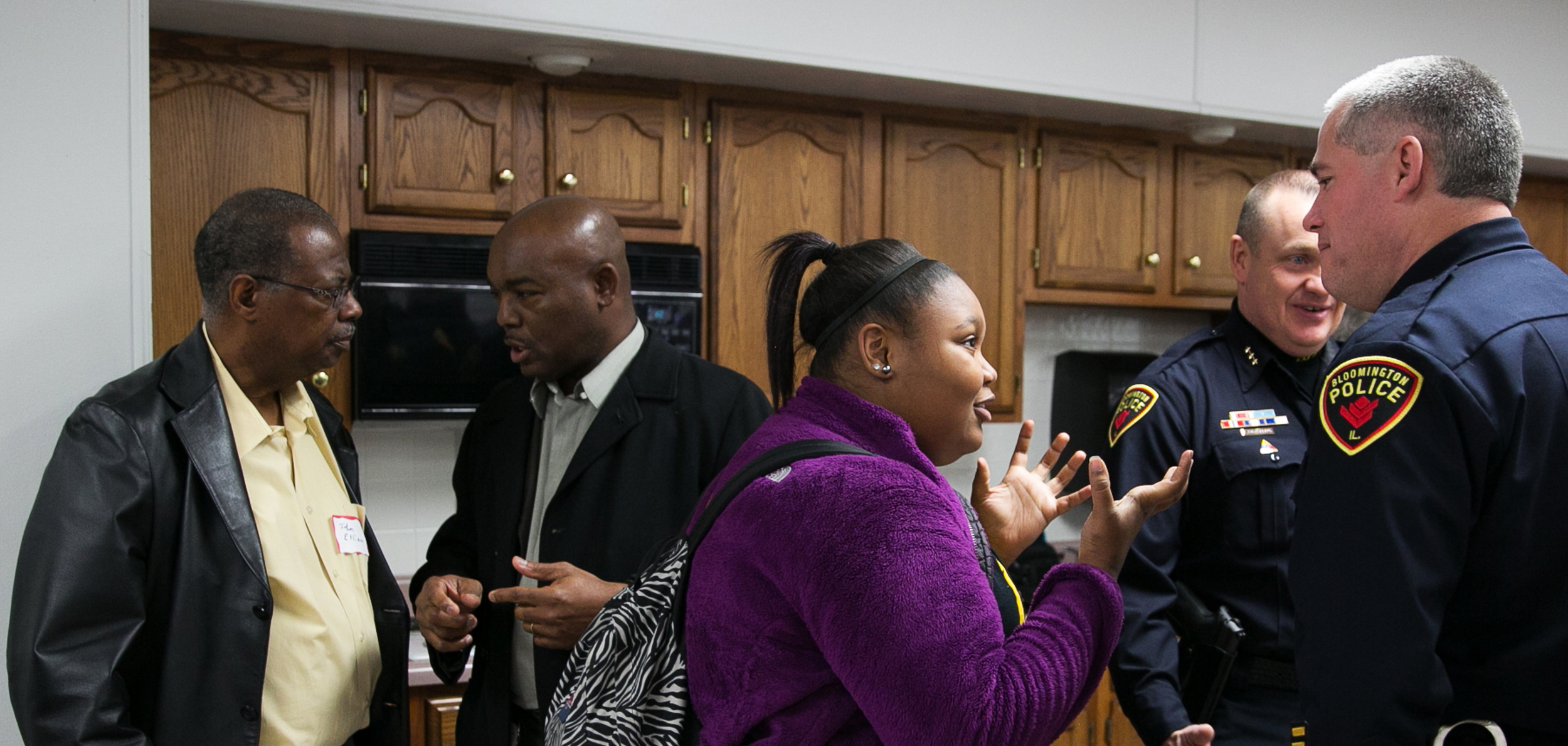(Heffner attended NIOT's Dec. 9 relaunch and was one of the first to sign the group's new anti-bigotry/anti-bullying pledge, along with Bloomington Mayor Tari Renner)
Several organizations and public officials are sponsoring a public gathering on "breaking barriers," from 6 to 8 p.m. Jan. 22 at City of Refuge Church, Bloomington.
The 19-year-old Bloomington woman faces felony charges of aggravated battery and resisting a police officer stemming from a fight at a Bloomington restaurant in June 2013.
Prosecutors say Calhoun was among several hundred people who went to a party at Lucky Garden restaurant on Eldorado Road. Many of those in attendance, including Calhoun, then went to the nearby Denny's after the party ended.
According to testimony Thursday, a brawl erupted inside the restaurant and Officer Stephen Statz witnessed a black man with a knife wound leaving the restaurant. Later, Sgt. Ed Shumaker received an update from Statz.
Defense attorney Steve Skelton attempted to enter into evidence their conversation as recorded by a Bloomington police in-car camera.
Assistant State's Attorney Samantha Walley objected and the jury was sent from the courtroom while the profanity-laced conversation was heard by Costigan in open court.
On the tape, and in reference to the apparent stabbing, a man identified as Shumaker was heard asking Statz if the wounded man was black.
"Yes," Statz replied.
"Good, I hope he (expletive) bleeds to death in Normal," Shumaker said.
"Yeah," Statz answered.
Skelton argued that Statz's answer implied he was biased against his client and blacks in general.
"He hears the statement, and he adopts and agrees with it and that brings a bias toward my client," Skelton said.
Walley argued the statement was irrelevant because the comments had nothing to do with the charges against Calhoun.
"He (Shumaker) appeared after the fact and his comment has no relationship whatsoever to the case," she said. "It is being offered for no other reason except to upset the jury."
In his decision to bar the comment, Costigan said the case would be decided on its merits and a comment from one member of the department that could be construed as racist, should not be applied to every officer.
Following the ruling, Skelton asked for the mistrial based on the ruling that Costigan quickly denied.
Calling the comment "inappropriate," Heffner's statement said, in part: "We are disturbed and deeply saddened that one of our officers made such comments.
"In July 2013, the police administration conducted an in-depth review of the incident and acted swiftly to address the issue. As a result, the department administered discipline to the employee in question."
Heffner, who was not chief at the time of the incident, did not specify what disciplinary action was taken.
Thursday afternoon, a coalition announced the dialogue session.
"The program is an attempt to foster positive dialogue between citizens and law enforcement," their statement said.
The sponsors are: Not In Our Town, Bloomington/Normal; NAACP; Minority & Police Partnership; League of Women Voters; Bloomington, Normal, Illinois State University and McLean County sheriff's police; the McLean County state's attorney's office; Bloomington & Normal Trades & Labor Assembly (AFL-CIO); and 100 Black Men of Central Illinois.
The Rev. Lee Bennett of City of Refuge will moderate; Conexiones Latinas will provide Spanish translation services.
People are encouraged to send questions in advance, and they may remain anonymous. Post them at http://bit.ly/1wMTMAa or mail them to the NAACP, PO Box 925, Normal, IL 61761.
















